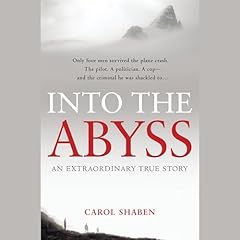
1177 B.C.
The Year Civilization Collapsed
No se pudo agregar al carrito
Add to Cart failed.
Error al Agregar a Lista de Deseos.
Error al eliminar de la lista de deseos.
Error al añadir a tu biblioteca
Error al seguir el podcast
Error al dejar de seguir el podcast
 Exclusivo para miembros Prime: ¿Nuevo en Audible? Obtén 2 audiolibros gratis con tu prueba.
Exclusivo para miembros Prime: ¿Nuevo en Audible? Obtén 2 audiolibros gratis con tu prueba.Compra ahora por $19.10
-
Narrado por:
-
Andy Caploe
-
De:
-
Eric H. Cline
In 1177 B.C., marauding groups known only as the "Sea Peoples" invaded Egypt. The pharaoh’s army and navy managed to defeat them, but the victory so weakened Egypt that it soon slid into decline, as did most of the surrounding civilizations. After centuries of brilliance, the civilized world of the Bronze Age came to an abrupt and cataclysmic end. Kingdoms fell like dominoes over the course of just a few decades. No more Minoans or Mycenaeans. No more Trojans, Hittites, or Babylonians. The thriving economy and cultures of the late second millennium B.C., which had stretched from Greece to Egypt and Mesopotamia, suddenly ceased to exist, along with writing systems, technology, and monumental architecture. But the Sea Peoples alone could not have caused such widespread breakdown. How did it happen?
In this major new account of the causes of this "First Dark Ages", Eric Cline tells the gripping story of how the end was brought about by multiple interconnected failures, ranging from invasion and revolt to earthquakes, drought, and the cutting of international trade routes. Bringing to life the vibrant multicultural world of these great civilizations, he draws a sweeping panorama of the empires and globalized peoples of the Late Bronze Age and shows that it was their very interdependence that hastened their dramatic collapse and ushered in a dark age that lasted centuries.
A compelling combination of narrative and the latest scholarship, 1177 B.C. sheds new light on the complex ties that gave rise to, and ultimately destroyed, the flourishing civilizations of the Late Bronze Age - and that set the stage for the emergence of classical Greece.
©2014 Eric H. Cline. Published by Princeton University Press. (P)2014 Audible, Inc.Los oyentes también disfrutaron:




















Las personas que vieron esto también vieron:


















What did you like best about 1177 B.C.? What did you like least?
The subject matter is very interesting although the backstory seems overly involved and protracted. What really stood out though was the sing song nature of the narration. It was like he was reading a children's book... or something.. his rhythm and tonalities weren't congruent with the subject matter.Narrator Drove Me Crazy
Se ha producido un error. Vuelve a intentarlo dentro de unos minutos.
We don’t know that’s the message in a nutshell
Se ha producido un error. Vuelve a intentarlo dentro de unos minutos.
Paper may be better
Se ha producido un error. Vuelve a intentarlo dentro de unos minutos.
Meticulous analysis
Se ha producido un error. Vuelve a intentarlo dentro de unos minutos.
Good
Se ha producido un error. Vuelve a intentarlo dentro de unos minutos.


